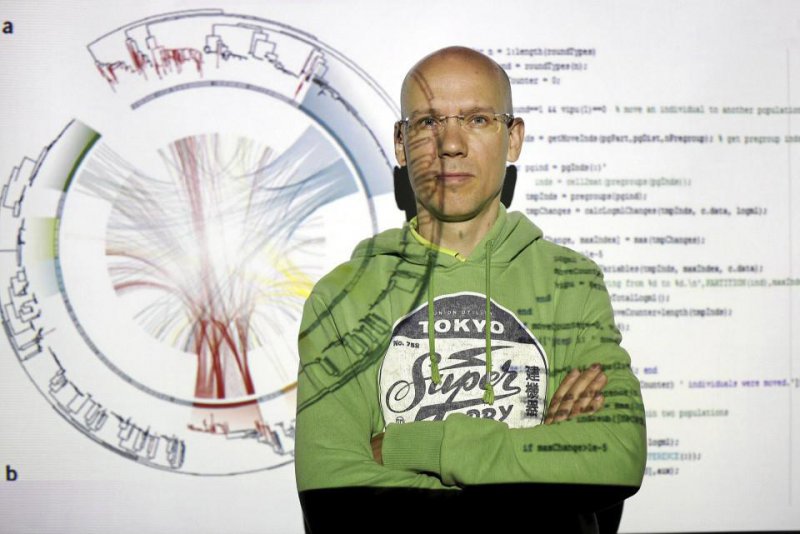
Streptococcus pneumoniae i.e. the pneumococcus is one of the major human infectious disease causes worldwide, for which treatment has become increasingly difficult due to escalating levels of antibiotic resistance. Computational modeling of the genomes from thousands of pneumococcus strains sampled on the Mae La refugee camp in Myanmar/Thailand revealed that the so called nontypable strains act as a gene reservoir for the whole population, and effectively distribute genes upon selection pressure to other strains representing a wide variety of serotypes. The study is the first of its kind and paves way for the next generation of scientific explorations about bacterial population evolution by ultra-high sampling density. In addition it shows the necessity of considering nontypable strains in the future when planning control actions for pneumococcal disease.
Claire Chewapreecha, Simon R Harris, Nicholas J Croucher, Claudia Turner, Pekka Marttinen, Lu Cheng, Alberto Pessia, David M Aanensen, Alison E Mather, Andrew J Page, Susannah Salter, David Harris, Francois Nosten, David Goldblatt, Jukka Corander, Julian Parkhill, Paul Turner and Stephen D Bentley (2014). Dense genomic sampling identifies highways of pneumococcal recombination. Nature Genetics, doi:10.1038/ng.2895
Helsingin Sanomat: Pöpöt tottelevat algoritmeja
Last updated on 1 Dec 2014 by Maria Lindqvist - Page created on 9 Sep 2014 by Maria Lindqvist